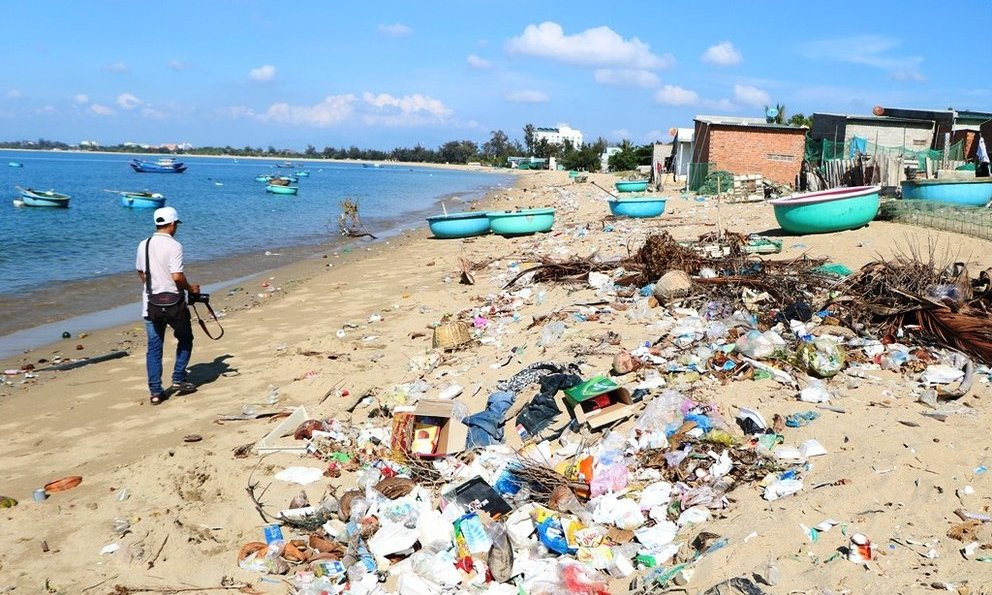
Nguyen Trung Thang, deputy director of the Institute of Policies for Natural Resources and the Environment, said that 80 percent of plastic waste in the ocean originates from the mainland, while the remaining 20 percent is deposited by vehicles or people on sea waters.
According to the UN Environment Program (UNEP), in 2018, Vietnam ranked fourth out of 20 countries with the largest volume of plastic waste discharged into the sea. The amount was 0.28-0.73 million tons a year.
With the increasing number of travelers, the plastic waste problem has become more serious. Each traveler in Vietnam on average discharges 5-10 plastic bags, 2-4 plastic bottles and milk cartons every day.
Nguyen Anh Tuan, director of the Institute for Tourism Development Research (ITDR), an arm of the Vietnam National Administration of Tourism (VNAT), said that pollution, especially untreated waste and water waste, is clearly visible at key tourism sites.
On Phu Quoc Island, waste is piling up along the way to resorts and entertainment sites.
He said he has also seen waste at coastal tourism sites on Ha Long Bay and on islands.
There are four tons of waste on Ha Long Bay deposited each day, mostly plastic waste, and 105 tons of waste at Sam Son, including 25.2 tons of plastic waste.
The figures are 1,100 tons (17 percent of which is plastic waste) in Da Nang, 524 tons in Tuy Hoa (Phu Yen) (18.31 percent), and 155 tons in Phu Quoc (32.1 tons, 19 percent).
ITDR estimated that in 2019, with 18 million foreign and 43.5 million domestic travelers, about 116,114 tons of waste were discharged into the environment.
Tuan warned that if Vietnam doesn’t take effective measures, the volume of plastic waste from tourism by 2030 would be three times higher than 2019.
That is why in the World Economic Forum's 2022 Tourism Development Capability Index of Vietnam, the Environmental Sustainability Index ranked the 94th, the lowest.
Vietnam has set a roadmap on mitigating, reusing, recycling and treating plastic waste, which is concretized in laws, decrees and legal documents.
After 2025, Vietnam won’t use disposable plastic products and non-biodegradable plastic packaging at shopping centers, supermarkets, hotels and tourist sites.
Ngoc Ha